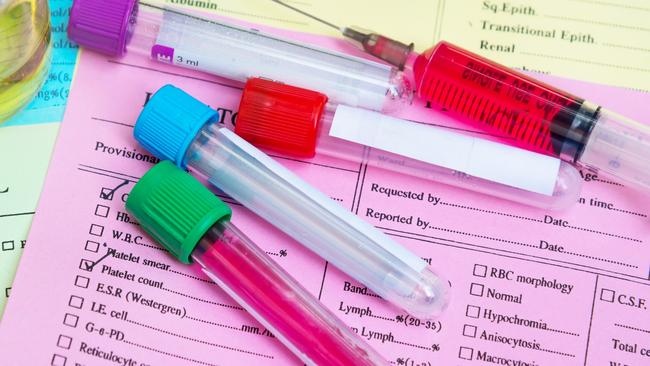Major win in war on Alzheimer’s disease
Early treatment of Alzheimer’s is key to preventing the progression of symptoms — and a record-setting test may not be too far away.

News
Don't miss out on the headlines from News. Followed categories will be added to My News.
A simple blood test telling people whether they are likely to get Alzheimer’s disease could be just two years away.
The same world-first research — using fats in the blood as markers of the disease — may also be the key to stopping the onset of the heartbreaking illness, which affects hundreds of thousands of Australians.
In a groundbreaking discovery, Melbourne’s Baker Institute has found lipids (or fats) in the blood are markers of the deadly condition, in which people lose their memory and eventually their day-to-day function.
Head researcher Peter Meikle told the Sunday Herald Sun a blood test for Alzheimer’s was “now very close”.
“If we can get the funding, we could probably have a test up in two years, three years at the outside,” he said.
Professor Meikle said that with Alzheimer’s disease, as with most degenerative illnesses, knowledge was power and early treatment was the key to preventing the progression of symptoms.
The research had shown that how people metabolised lipids changed as they aged, and changed faster in some people, he said.

“It’s those changes in our lipid metabolism that are associated with a risk of developing Alzheimer’s disease, so if we can reverse those changes or halt those changes in our metabolism as we age, then we can probably prevent the onset of Alzheimer’s disease,” Prof Meikle said.
“There is a better chance of a good outcome if you are able to identify patients early, before they show signs of dementia … that’s going to be the key, not just to developing preventatives but also treatments (because) in Alzheimer’s, the pathology starts long before the clinical symptoms, there is pathology developing in the brain for years before you start to show signs of dementia.”
The Baker Institute research was conducted in collaboration with scientists from Edith Cowan University and the Alzheimer’s Disease Metabolomics Consortium in the US, studying 5733 clinical samples from 1912 people.
It had shown a link between lipids and Alzheimer’s disease through changes in the blood and brain of people known to be at high risk of the illness.
But Prof Meikle said the research now needed to be expanded to study lipids in people who were not known to be at high risk of developing the disease.
“We need to demonstrate that these tests can work in the general population, because that’s where most of the cases occur,” he said.
Global rates of Alzheimer’s disease are expected to reach 81 million by 2040. Up to 460,000 Australians have dementia, and Alzheimer’s disease accounts for up to 70 per cent of all diagnosed cases.





